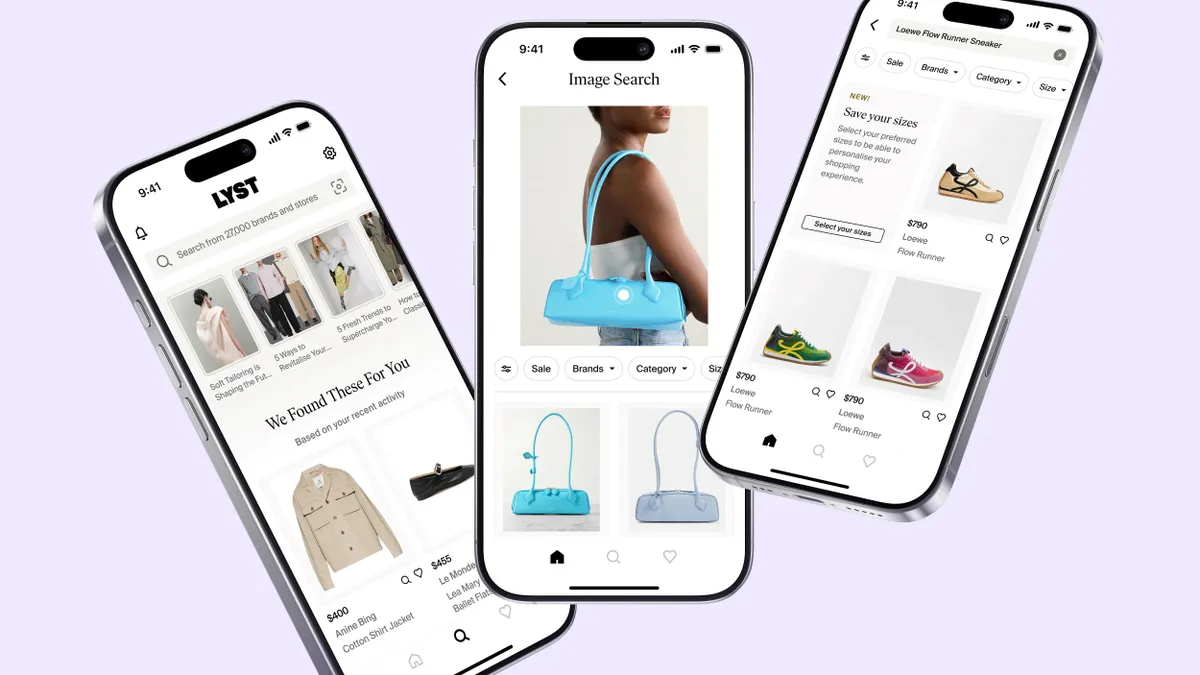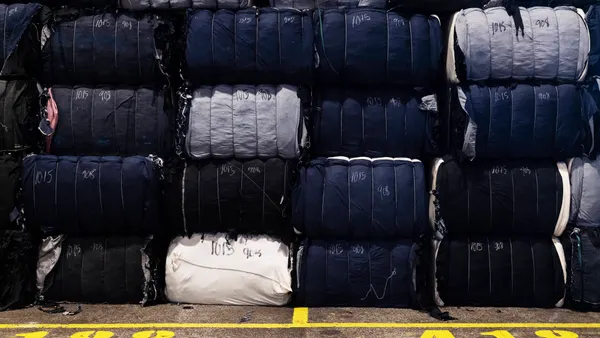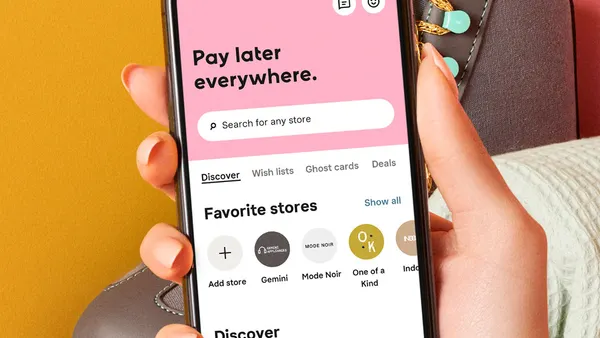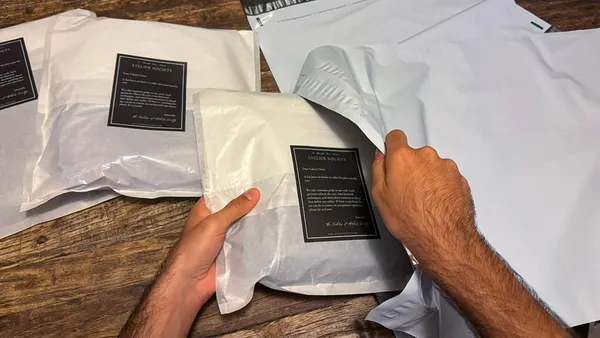Dive Brief:
- The Federal Trade Commission is considering a petition to digitize care labels on apparel.
- The request was brought by the American Apparel and Footwear Association. The petition says digital labels will more conveniently inform customers about product care and reduce waste, as well as save money on printing and labeling.
- The FTC opened public comment on the petition this month. Ralph Lauren and Patagonia are among the companies supporting the change.
Dive Insight:
The request seeks to revise the Care Labeling of Textile Wearing Apparel & Certain Piece Goods Rule, which requires manufacturers to provide regular instructions for product care and prohibits deceptive practices that fail to disclose such instructions. The rule went into effect in 1971, per the petition.
The requested change calls for the FTC to allow for a URL or QR code that could be applied to apparel either on a small tag or as a direct stamp on the item. The AAFA said this would help avoid “lengthy labels in small text in multiple languages and with confusing symbols that are hard to read, and understand, printed on large, uncomfortable tags.”
In addition to providing care instructions, the links could provide product ingredients, supply chain descriptions and sustainability metrics, per the AAFA.
Adding supply chain descriptions and sustainability facts to a garment could also help comply with a European Union legislation that requires a Digital Product Passport on products with databases on materials tracing and manufacturing information.
“[A]pparel manufacturers should have the flexibility to choose to best serve the needs of their consumers by utilizing digital labeling,” the AAFA wrote in the petition.
AAFA is asking the FTC to allow the industry to modernize, Chelsea Murtha, AAFA senior director of sustainability, said in an email.
"Under current labeling laws, clothing companies are required to produce around 5.7 million miles of label tape each year," Murtha said. "Shifting to the use of digital labels, with care labeling as a starting point, would significantly reduce labeling waste, provide consumers with better, more detailed information about their garments, and facilitate the industry’s circular transition."
In its comment in support of the petition, fashion firm Ralph Lauren said it began including digital labels on some of its products in 2019 and since then has included QR codes on more than 400 million products.
Meanwhile, Patagonia said in its comment that it implemented QR codes into its 2025 product line and has seen engagement increase.
“Patagonia has found that consumers typically cut out the care/content labels which makes returns, repairs, and recycling of garments more difficult,” Patagonia wrote. “Patagonia believes allowing digital labeling is the modernization required to help businesses meet the ever-changing regulatory landscape and benefits consumers to provide product details in a more accessible way.”
However, in a comment submitted to the FTC, regulatory attorney Michael Ravnitzky said removing physical labels entirely is inadvisable, citing the difficulty smaller apparel manufacturers may have with implementation. Ravnitzky also noted that there would be issues for customers who don’t have smartphones or internet access.
“The petition does not sufficiently address critical concerns about accessibility, reliability, and cybersecurity, nor does it consider the unintended impacts on consumers, smaller manufacturers, and the secondhand clothing market,” Ravnitzky wrote. “...I urge the FTC to pursue a regulatory framework that embraces technological advancements without sacrificing inclusivity or reliability, ensuring that manufacturers, consumers, and the environment all benefit.”
Editor's note: This story has been updated with a comment from AAFA's senior director of sustainability.











